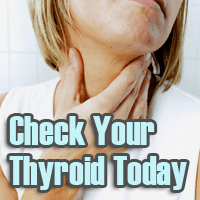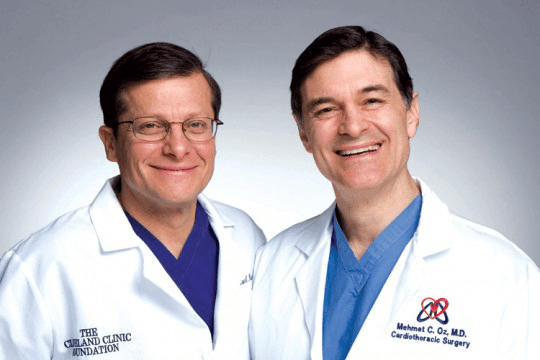
Tired? Moody? Can’t lose weight or remember where you parked your car (again)? Your thyroid, a butterfly-shaped gland at the base of your neck that helps regulate metabolism, may be out to lunch. And now, new research offers one more reason to get yours checked out: A malfunctioning thyroid raises your odds for heart disease.

We think you should start with a thyroid hormone test at age 35, then repeat it every other year at your annual physical. (You do get an annual physical, don’t you?) It’s the only way to establish a baseline and then track how this important gland is doing. Tens of millions of North Americans may be dragging around in low gear as a result of an underactive thyroid. Older people, women and anyone with a family history of thyroid troubles are at highest risk.
Even a slightly underactive thyroid (called subclinical hypothyroidism) is a medical condition worth fixing with a daily dose of thyroid hormone. It can boost energy, help you lose weight and help clear up foggy thinking, memory lapses and depression. And now, two new studies report that an underactive thyroid boosts your odds for heart disease by 30 percent, offbeat heart rhythms (they increase the risk of heart attack and stroke) by 68 percent and overall chances of dying early by 24 percent.
So, what messes with this gland? In the old days, an iodine-poor diet was assumed to be the cause of a sluggish thyroid. Today we’ve discovered that the biggest threat comes from an autoimmune condition called Hashimoto’s disease, in which your misguided immune system kills off thyroid-hormone-producing cells in the gland. Viral infections, drugs (like lithium and amiodarone) and even pregnancy also can leave your thyroid stuck in low gear.
Warning signs of an underactive thyroid include tiredness, forgetfulness, stubborn weight gain, feeling cold, constipation, sore muscles, a puffy face and dry hair, skin and nails.
 If you want to do a quick home test, these drills can help you spot trouble:
If you want to do a quick home test, these drills can help you spot trouble:
The Swallow Check: Tip your head back a little and take a sip of water. Watch the lower part of your neck – above your collarbone and just below your voice box – while you swallow, looking for any bulges or bumps. Do this several times. If you notice any bumps, bulges or protrusions, tell your doc. You may have an enlarged thyroid gland or a thyroid nodule that needs further checking.
The Eyebrow Test: Stand in front of a mirror. Hold a pencil up to the outer corner of your left eye, so that the pencil is vertical – one end points to the floor, the other to the ceiling. Check to see if there’s eyebrow hair to the left of the pencil. One sign of low thyroid is the loss of eyebrow hair here (not because you plucked or waxed it off, of course!). If you’re hairless there, check the symptom list again, and talk with your doc.
Once you’ve decided to talk with your doc …
Ask for a TSH test. “TSH” stands for “thyroid-stimulating hormone” – a compound produced by your pituitary gland that tells your thyroid to pump out metabolism-controlling hormones of its own. A TSH of 10 mlU/L or more is a sign that you have hypo (low) thyroid; from 5 to 10 indicates that you may have the condition and it should be investigated, even if hormones produced by your thyroid gland, called T3 and T4, are still normal. Normal is .4 to 4.0.
Solve the problem. Taking the synthetic thyroid hormone levothyroxine every day can normalize your thyroid hormone levels and take care of the symptoms. Be aware that not every version (Levothroid, Levoxyl, Synthroid) works the same for every person; don’t settle for less than total relief. And you should never change brands without working carefully with your endocrinologist to monitor results.
– Dr. Michael Roizen and Dr. Mehmet Oz
© 2012 Michael Roizen, M.D. and Mehmet Oz, M.D. Distributed by King Features Syndicate, Inc.

